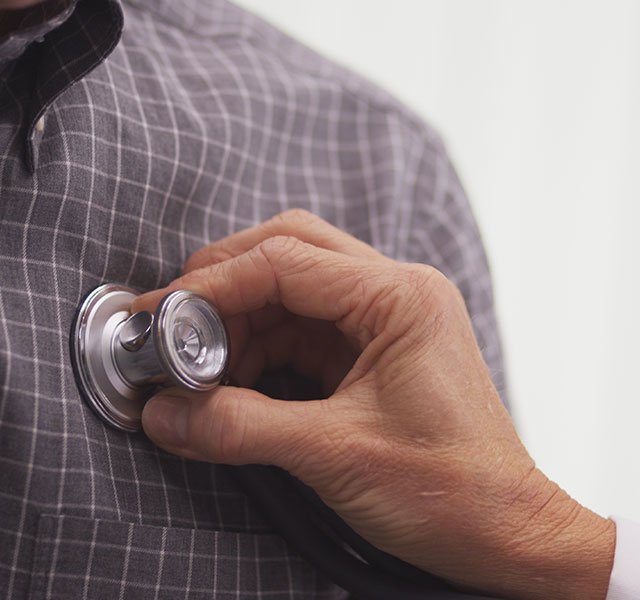By now, you’re probably familiar with the effects COVID-19 can have on your body. While many people who have tested positive are able to manage symptoms like coughing or shortness of breath at home, there are still others that have relied on ventilators to help their lungs function.
Henry Ford cardiologist Henry Kim, M.D., warns that your lungs may not be the only organs impacted by the stress of the virus.
“Viruses can directly or indirectly affect the heart as well,” Dr. Kim says. “Some viruses infect the heart itself by directly impacting heart cells. Other times, viruses can attack blood cells that cause inflammation around the heart.”
This impact could have lasting effects. Inflammation around the heart can put you at higher risk for a heart attack, a blocked artery, or heart failure.
Just like having asthma or being older puts you at a greater risk for contracting the virus, the same can be said for people with heart conditions. Understanding these health risks can help you pay closer attention to your heart – whether you have a diagnosed cardiovascular condition or not.
How Heart Health Affects Your Risk Of COVID-19
If you have heart disease, it is important to closely follow the COVID-19 safety guidelines provided by reputable sources like the Centers for Disease Control and Prevention (CDC). These practices are your best bet for avoiding the virus:
- Practice social distancing
- Wash your hands thoroughly and frequently
- Avoid leaving the house, unless necessary
- Follow mask guidelines
- Consider having groceries and prescriptions delivered to your home
With cardiovascular disease, it also important not to neglect your condition out of fear of the virus. If your heart condition requires you to take medication, do not stop taking it – even if you get sick. Your cardiologist will let you know if there is ever a time you should stop taking this medication.
It is also important to be aware of when your prescription will run out. Because of COVID-19, you may be able to have your refilled prescription mailed or delivered to you instead of having to go to the pharmacy.
Maintaining Your Heart Health During The Pandemic
Even if you haven’t been diagnosed with a heart condition, keeping your heart healthy during this outbreak is incredibly important. Don’t use quarantine as an excuse to be less active than you normally are or to feast on unhealthy foods. Dr. Kim shares his simple tips for improving your heart health:
- Avoid stress. Your stress levels may be at an all-time high now, but prolonged stress causes the body to work the heart more. “Look for ways to destress throughout the day and frequently check in on your own mental health,” says Dr. Kim.
- Eat healthy. Look for ways that you can make heart-healthy food choices at home like eating more whole grains, lean meats, and plenty of fruits and vegetables. Consider swapping out ingredients in your recipes for low-fat alternatives.
- Stay active. Use what you have around the house to diversify your home workout. Run stairs or use handheld objects as weights. On nicer days, get outside for a walk or bike ride to get your heart pumping.
If at any point you notice a change in your heart health, call 911 or visit your nearest emergency room.
“We have been seeing fewer patients with acute cardiovascular conditions coming into the emergency room,” says Dr. Kim. “This is extremely concerning because delaying care can result in a more serious situation with increased risk of complications.”
If you have a heart condition and test positive for COVID-19, your doctor will determine if it is best for you to recover in self-isolation at home or if they would like to monitor your condition more closely in the hospital.
To find a doctor or a cardiologist at Henry Ford, visit henryford.com or call 1-800-HENRYFORD (436-7936).
Dr. Henry Kim is the division head of cardiology at Henry Ford Health. He sees patients at Henry Ford Medical Center – Livonia.



